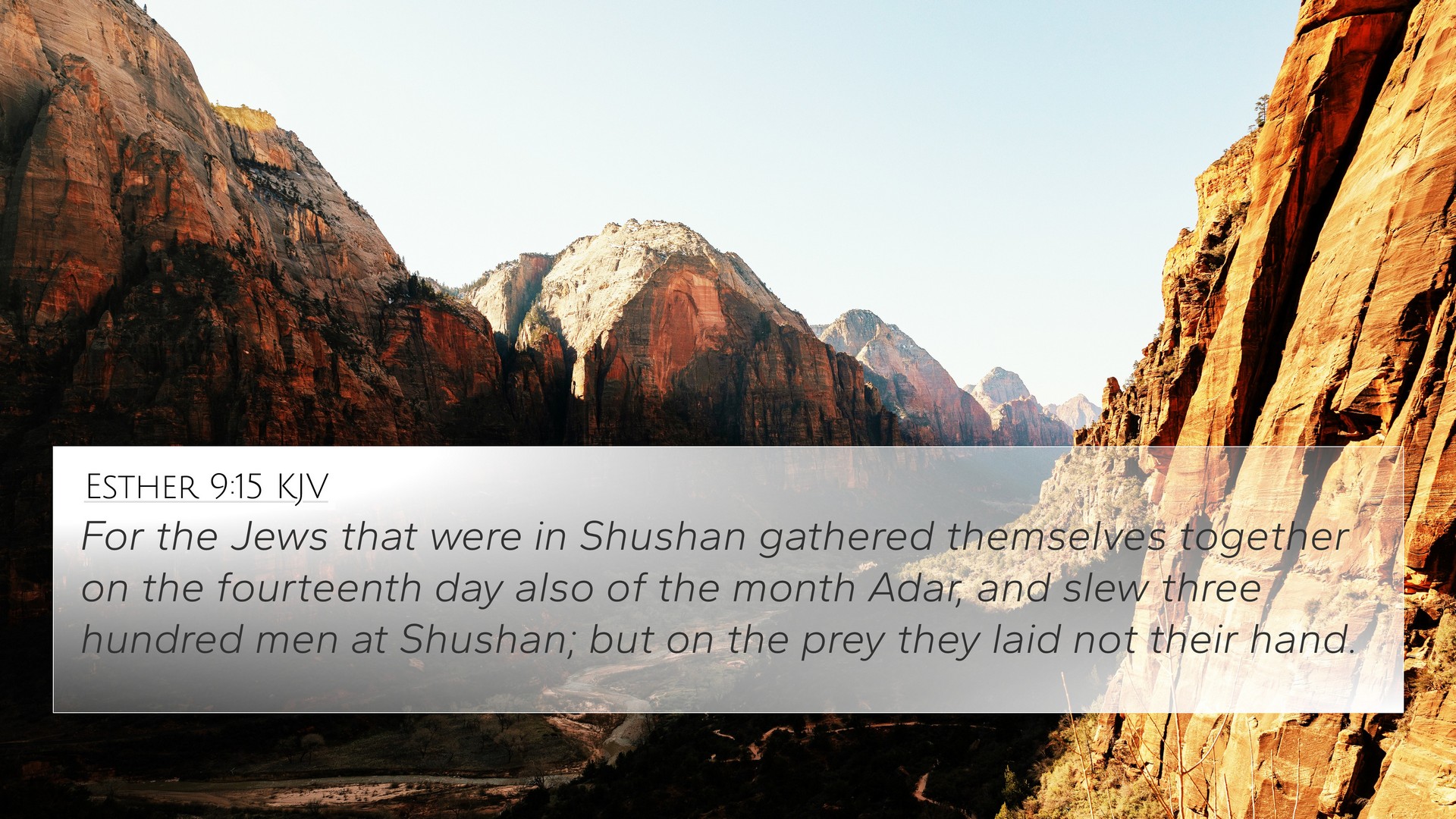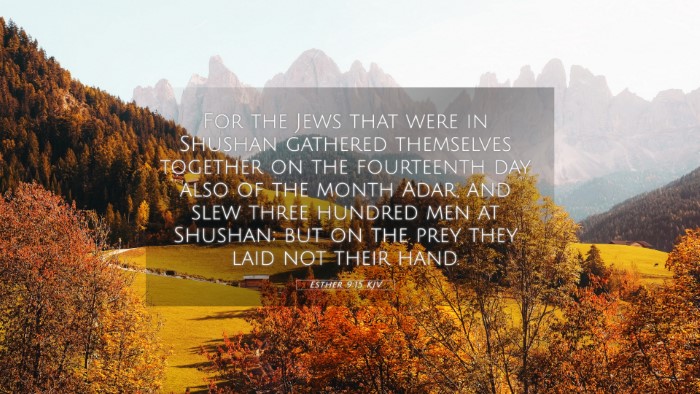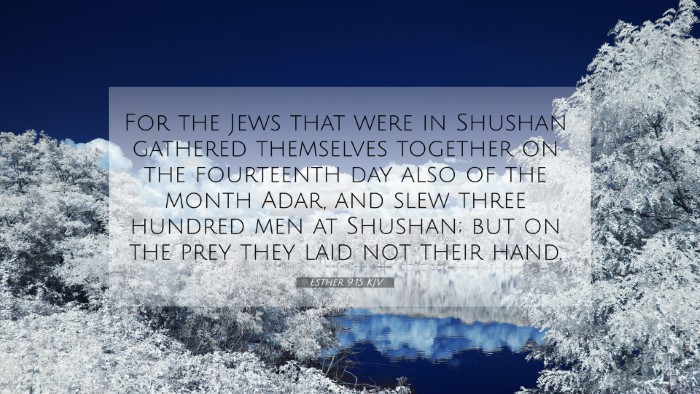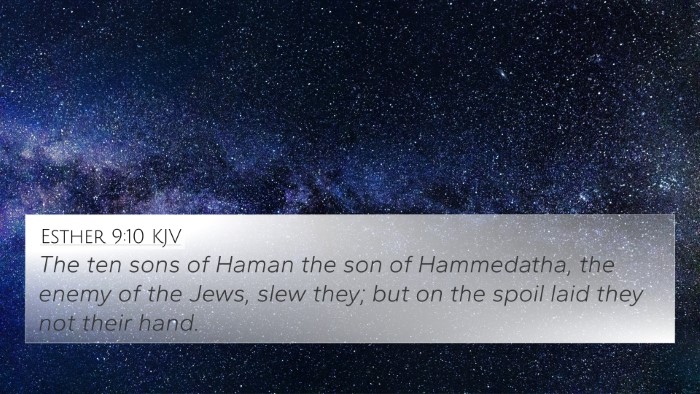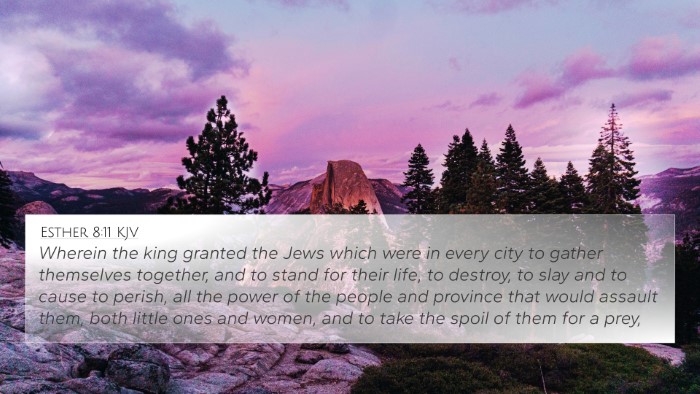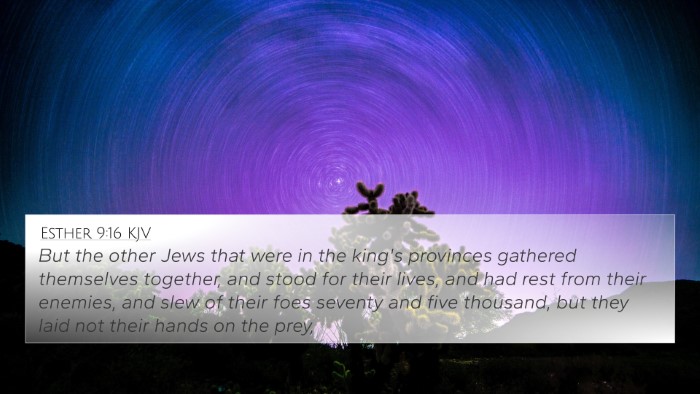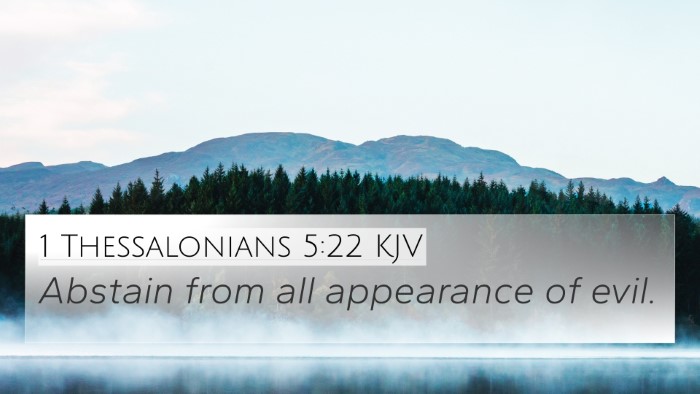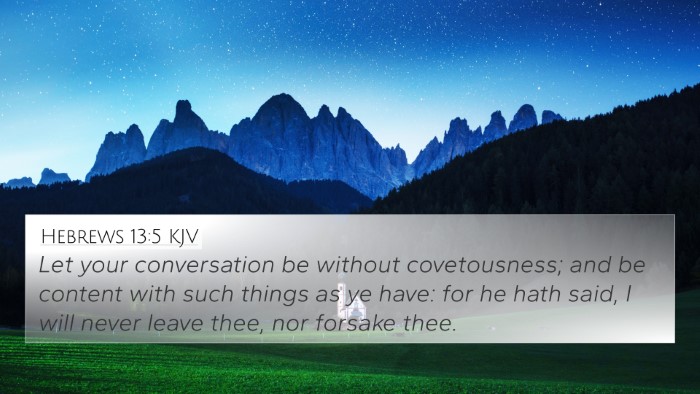Understanding Esther 9:15
Esther 9:15 is a significant verse within the Book of Esther, depicting the aftermath of the decree allowing the Jews to defend themselves and the subsequent victory they experienced. The commentary on this verse not only provides insight into its immediate context but also connects it to broader Biblical themes of deliverance, justice, and God’s sovereignty.
Verse Context
In Esther 9:15, we find the Jews engaging in a victorious battle against their adversaries on the thirteenth day of the month of Adar. The king permitted them to defend themselves, and this verse highlights the outcome of their defense—slaying of their enemies and the striking down of those who sought their demise.
Commentary Insights
- Matthew Henry:
His commentary emphasizes the joy and celebration that followed their victory. The slaying of their enemies signifies divine retribution and the fulfillment of God's promise to protect His people. Henry points out that this response was not merely violence but rather a defense of their lives from a real threat.
- Albert Barnes:
Barnes discusses the historical and cultural context of the events. He notes how the Jews were granted protection under Persian law, highlighting the providence of God in turning what could have been a tragic outcome into a monumental victory. This delivered the Jews, illustrating God's intervention in human affairs.
- Adam Clarke:
Clarke’s analysis mentions the significance of the number of enemies defeated—highlighting the effectiveness of their action and the urgent necessity for self-defense. He also connects the events to the overarching narrative of redemption and the fulfillment of God’s covenant with Israel.
Key Themes
- Divine Protection and Justice: The verse showcases God's hand in protecting His people, reinforcing the belief that justice prevails.”
- Celebration of Victory: Following their success, the Jews celebrated with feasting and rejoicing, establishing the festival of Purim, which has great significance in Jewish culture.
- Faithfulness in Adversity: The verse speaks to the theme of remaining faithful and courageous in the face of impending danger.
- The Sovereignty of God: God’s role in the victory suggests His sovereignty over the circumstances that shape the lives of His people.
Bible Cross-References
Esther 9:15 has several important scriptural connections that enhance its understanding:
- Exodus 17:14-16: The Lord's promise to have war with Amalek, showing His commitment to Israel’s protection.
- Deuteronomy 20:1-4: Instructions for Israel on warfare and the assurance of God’s presence in battles.
- Psalm 44:5: The psalmist speaks of victory through God's support, relating to the theme of divine assistance in adversity.
- Isaiah 54:17: No weapon formed against you shall prosper, underscoring protection against enemies.
- Jeremiah 1:19: God assures Jeremiah that He will protect him against opposition.
- Romans 8:31: "If God is for us, who can be against us?" which resonates with the assurance found in Esther’s narrative.
- Hebrews 11:34: Through faith, individuals received strength to fight and overcame opposition, linking back to Esther's courageous stance.
- Psalms 106:48: Links the praises of God with His acts of deliverance, relevant to the theme found in Esther.
- 1 Corinthians 15:57: The theme of victory through God can be echoed here, relating to both physical and spiritual triumphs.
- Luke 1:54-55: Mary's song about God helping Israel, pertinent in showing God's ongoing covenantal faithfulness.
Application and Reflection
Esther 9:15 invites believers to reflect on how God preserves and delivers His people throughout generations. In studying this verse alongside its cross-references, we uncover a tapestry of divine help, courage, and the invincibility of faith in facing challenging times. As believers today, we can draw strength from these narratives, understanding that, like the Jews in Esther's time, we too are assured of God’s protection.
Tools for Further Study
To deepen your understanding of Esther 9:15 and similarly related verses, consider using the following tools:
- Bible concordance for finding cross-references.
- Bible cross-reference guide for detailed insights.
- Cross-reference Bible study materials for thematic exploration.
- Utilizing Bible reference resources can facilitate in-depth study.
Conclusion
Esther 9:15 not only reveals a historical victory for the Jews but also serves as a timeless reminder of God’s unyielding faithfulness and power. Through the connections established with other scriptures, this verse fosters understanding and encourages the faith of believers facing their own adversities.
